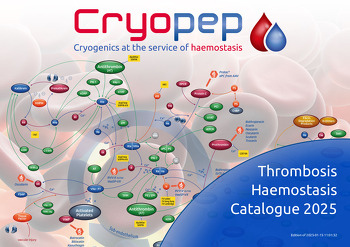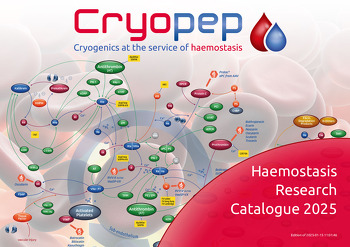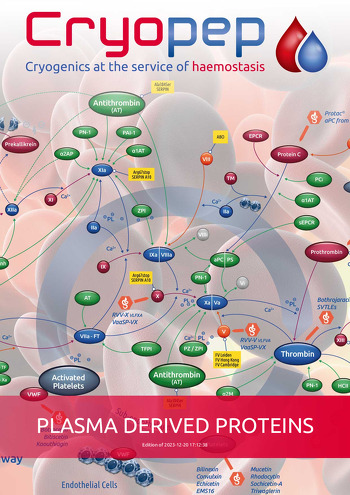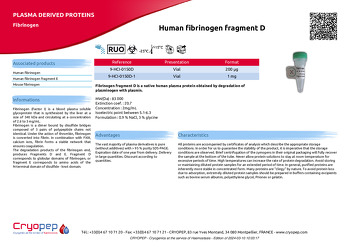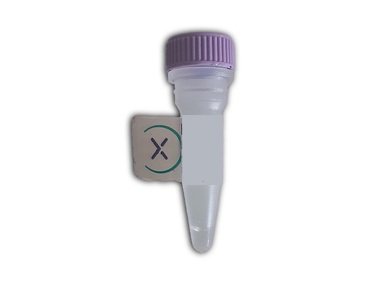HEMOSTASIS COAGULATION RESEARCH REAGENTS PLASMA DERIVED PROTEINS FIBRINOGEN
Human fibrinogen fragment D
Fibrinogen fragment D is a native human plasma protein obtained by degradation of plasminogen with plasmin.
MW(Da) : 83 000
Extinction coef. : 20.7
Concentration : 2mg/mL
Isoelectric point between 5.1-6.3
Formulation : 0.9 % NaCl, 3 % glycine
Advantages
The vast majority of plasma derivatives is pure (without additives) with > 95 % purity SDS-PAGE. Expiration date of one year from delivery. Delivery in large quantities. Discount according to quantities.
Informations
Fibrinogen (Factor I) is a blood plasma soluble glycoprotein that is synthesized by the liver at a size of 340 kDa and circulating at a concentration of 2.6 to 3 mg/mL.
Fibrinogen is a dimer bound by disulfide bridges composed of 3 pairs of polypeptide chains not identical. Under the action of thrombin, fibrinogen is converted into fibrin. In combination with FXIII, calcium ions, fibrin forms a stable network that ensures coagulation.
The degradation products of the fibrinogen end, produces Fragments D and E. Fragment D corresponds to globular domains of fibrinogen, or fragment E corresponds to amino acids of the N-terminal domain of disulfide - knot domain.
Documentation
Download the product sheetPrice list, safety data sheets and notices are accessible to our registered customers.
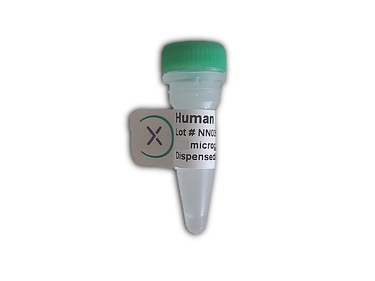






References
| 9-HCI-0150D | Vial | 200 µg |
| 9-HCI-0150D-1 | Vial | 1 mg |












